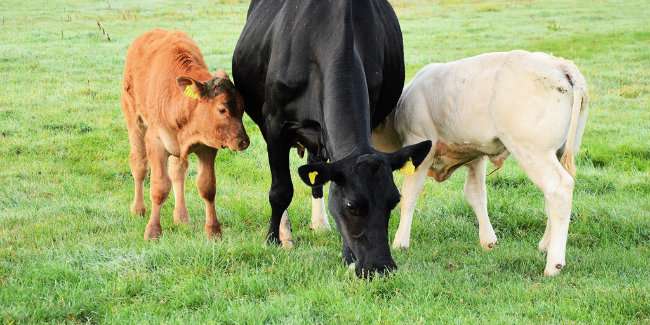Welsh Government proposals for agriculture post-Brexit need significant improvement

CCERA Committee's report on the UK Government's Agriculture Bill
The National Assembly's Climate Change, Environment and Rural Affairs Committee has said that significant amendments are needed to the UK Agriculture Bill before the Assembly is asked to agree to it.
Responsibility for agriculture in Wales sits with the Assembly. However, the Welsh Government has asked for specific powers to be included in the UK Bill to enable it to phase out direct payments to farmers and introduce new financial support schemes.
The UK Bill does not include any role for the Assembly. The effect of this will be that the Assembly's ability to scrutinise the Welsh Government's support for agriculture will be severely limited at a time of unprecedented uncertainty and change. Stakeholders, including farming unions, raised concerns about this when they gave evidence to the Committee. The NFU says it would have preferred a Wales Bill, subject to full Assembly scrutiny, "rather than piggy-backing via the (UK) Agriculture Bill".
The Committee believes the most appropriate way to legislate in an area so significant to Wales is through an Assembly Bill, rather than a UK Bill. Although the Committee believes the UK Agriculture Bill can provide short-term certainty to the sector, it has serious concerns about the wider Welsh provisions within the Bill.
For over 40 years, agriculture in Wales has been funded through CAP funding from the EU. The Committee believes that clarity about financial support is needed in the immediate post-Brexit period and believes that direct payments to farmers should continue, at least in the short term.
The proposed UK Bill will enable the Welsh Government to introduce new systems of financial support for agriculture after Brexit. In evidence to the Committee, the Welsh Government provided no information regarding the cost of introducing any new financial support other than to say "there will be no direct financial implications". However, the Committee was concerned that the UK Government meanwhile had warned about "significant expenditure" for its corresponding powers.
Mike Hedges AM, Chair of the Climate Change, Environment and Rural Affairs Committee said:
"For over four decades, agricultural policy has been decided primarily at an EU level. Brexit provides an opportunity for the Welsh Government to rethink the way the agriculture sector in Wales is supported. There are different views among stakeholders and across the Assembly about how best to do this."
"However, there is a consensus that Welsh farmers must continue to receive financial support under the current CAP schemes in the immediate post-Brexit period. While we support the inclusion of provisions in the UK Bill to allow for this, we have strong reservations about other provisions in the Bill that will introduce fundamental, long-lasting changes to agricultural policy in Wales."
"The most appropriate way to legislate on a subject as significant as the long term future of agriculture in Wales is through an Assembly Bill. The Welsh Government should give a commitment that time will be made available in the legislative programme for a Wales Agriculture Bill to be brought forward and to be passed before the end of this Assembly term."
The Committee calls for the Welsh Government to complete and publish a sector wide impact assessment before starting to phase out direct payments to farmers – something which is obviously causing great concern to farmers, as evidenced in its inquiry by farmers unions and other stakeholders.
Read the full report:
Report on the Legislative Consent Memorandum in relation to the UK Agriculture Bill (PDF, 1 MB)

